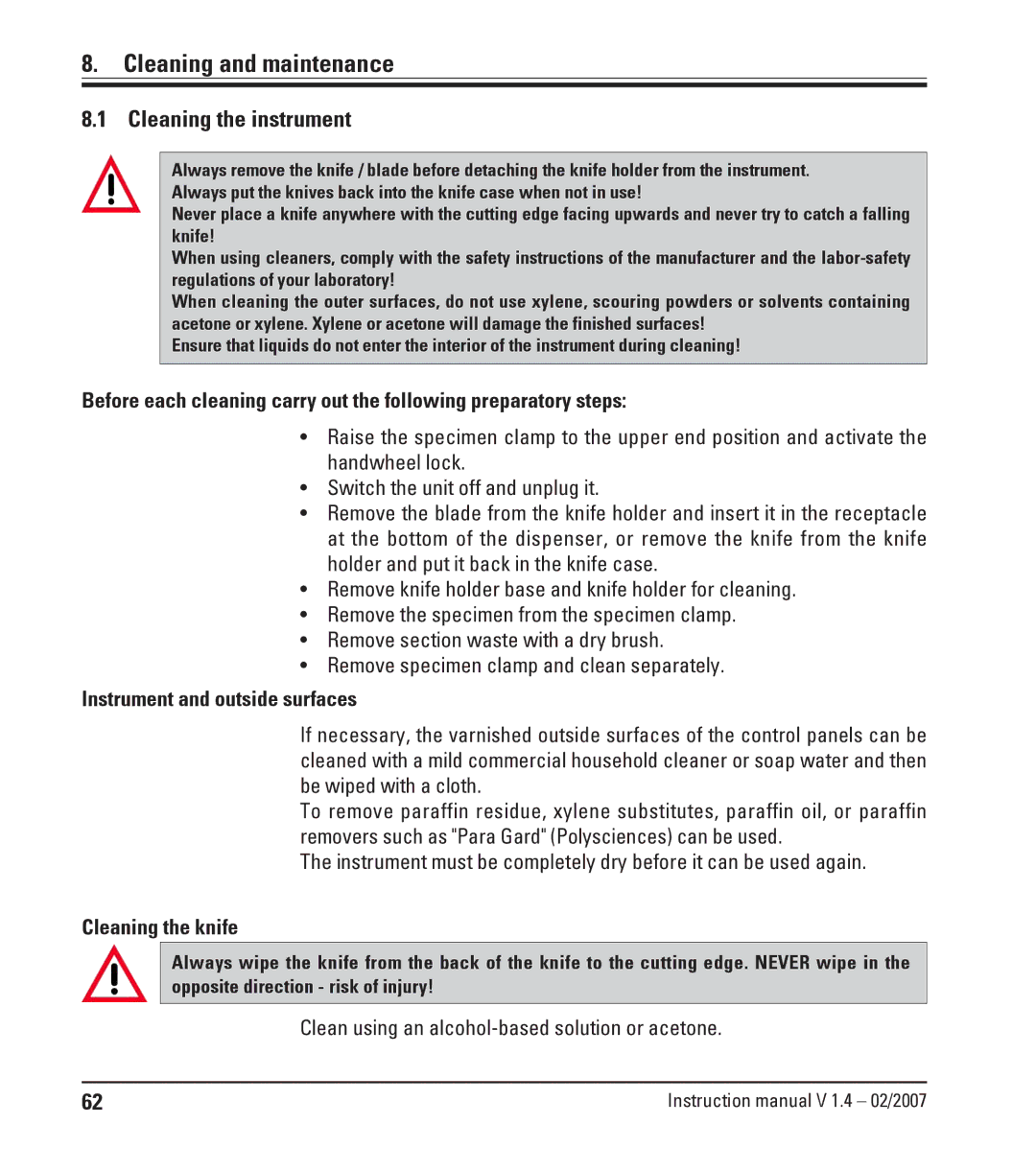
8. Cleaning and maintenance
8.1 Cleaning the instrument
Always remove the knife / blade before detaching the knife holder from the instrument. Always put the knives back into the knife case when not in use!
Never place a knife anywhere with the cutting edge facing upwards and never try to catch a falling knife!
When using cleaners, comply with the safety instructions of the manufacturer and the
When cleaning the outer surfaces, do not use xylene, scouring powders or solvents containing acetone or xylene. Xylene or acetone will damage the finished surfaces!
Ensure that liquids do not enter the interior of the instrument during cleaning!
Before each cleaning carry out the following preparatory steps:
•Raise the specimen clamp to the upper end position and activate the handwheel lock.
•Switch the unit off and unplug it.
•Remove the blade from the knife holder and insert it in the receptacle at the bottom of the dispenser, or remove the knife from the knife holder and put it back in the knife case.
•Remove knife holder base and knife holder for cleaning.
•Remove the specimen from the specimen clamp.
•Remove section waste with a dry brush.
•Remove specimen clamp and clean separately.
Instrument and outside surfaces
If necessary, the varnished outside surfaces of the control panels can be cleaned with a mild commercial household cleaner or soap water and then be wiped with a cloth.
To remove paraffin residue, xylene substitutes, paraffin oil, or paraffin removers such as "Para Gard" (Polysciences) can be used.
The instrument must be completely dry before it can be used again.
Cleaning the knife
Always wipe the knife from the back of the knife to the cutting edge. NEVER wipe in the opposite direction - risk of injury!
Clean using an alcohol-based solution or acetone.
62 | Instruction manual V 1.4 – 02/2007 |
